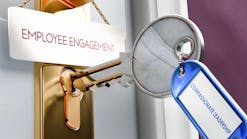Why are standard processes important? It is important for infection control, patient safety and quality assurance. All staff must have the knowledge to perform standard work processes. There are many resources available to support the standards: AAMI, IAHCSMM, AORN, FDA, etc.
Certification in Central Service has been an ongoing effort in providing the why with the how. As processes change, the education must keep up with the changes. IAHCSMM has been working with the individual states to attain mandatory certification. New Jersey was the first followed by New York, Connecticut, Tennessee with others in progress. Will you wait until certification is mandatory to have a fully certified staff? Or will you be a leader and work to that end now by taking steps to ensure standard work processes?
Roles and responsibilities
The role of the manager is to ensure the staff have the opportunity to succeed. The role of the staff is to notify the manager of the needs to be successful. It is a team effort. As a manager, we may not know your needs, so don’t assume we do. It is your responsibility to provide that input. It is then the responsibility of the management to acquire the necessary equipment/time/personnel to fulfill the need. It is also the managers responsibility to provide time for education and cross training. The need for education may come from the manager, an incident or a staff member who sees the need for education on a product or process. Bring this to the attention of the manager who will arrange for the training and time. The staff or manager, or someone from another department or vendor may provide the training. Utilize the expertise to share with others.
Having the correct equipment
Equipment can be diverse as it includes washers, sterilizers, instruments, space, ventilation, lighting, protective attire, information systems, scrub brushes and detergents. There is a process to acquire or maintain each. All staff should be aware of the procedure to replace products or call for repair. Having the correct products/process/equipment to complete the task appropriately is incumbent upon both managers and staff to understand. All must have access to the manufacturers’ instruction for use (IFU). Prior to the purchase and acquisition of new equipment or instrumentation, management and staff must review the IFU to ensure the department has the correct cleaning products and/or sterilization cycles, etc., to properly process the items.
Not clean? Not sterile!
The first step in ensuring a sterile product is correct cleaning and disinfection. Following the IFU, gather the equipment necessary to complete the task and follow the processes as described. This will create a standard across your organization and the country for this device. There is a standard process for re-ordering the cleaning products. Understand the process and the time it takes to arrive once ordered. The lack of cleaning products will affect patient care.
Load monitoring
Biologicals, packaging, filters for instrument containers, sterilization time, dry time, appropriate loading of items in the sterilizers, and wet packs are examples of monitoring. Do staff understand what to look for and how to address the issues that arise? Checking your work as well as that of your colleagues is required to ensure work standards have been followed. If a filter is missing from a container, pull and re-process the device before that device gets sent to the procedure area to be used. Reading the biologicals at the correct time interval is also important. Early release of sterilized products prior to the reading of the biological indicator should be avoided. We all know that the surgeons and operating room staff need the instruments to take care of the patient. However, any type of recall of products due to lack of monitoring creates infection control and patient safety issues.
Handling and care of sterilized packages
Although care has been taken to ensure the instruments, etc., are appropriately processed and sterilized, being mindful of the handling of the packages is an important step in the safe keeping of the product until that product is going to be used. Inappropriate care and handling includes the following: Tears in packaging and holes in wrap, picking up and not sliding the packages, finding burs on the shelves, transporting devices uncovered so they are exposed to elements and air-borne particulates, and dropping products on the floor. Staff should be aware of what to look for and how to respond when there is an issue. This is the same for manufactured products.
Call to arms
How are you working toward standard work performance across all staff and shifts? Experience, whether many years or as a beginner, coupled with ongoing education, is necessary to achieve the understanding of why performing work in a standard manner is important. Access to staff education is imperative to driving standard processes, which have a direct effect on infection control, patient safety, quality assurance and employee satisfaction.

Jean Sargent
Jean Sargent, CMRP, FAHRMM, FCS, currently serves as Principal, Sargent Healthcare Strategies, and is a member of Healthcare Purchasing News’ Editorial Advisory Board. She can be reached at [email protected].





